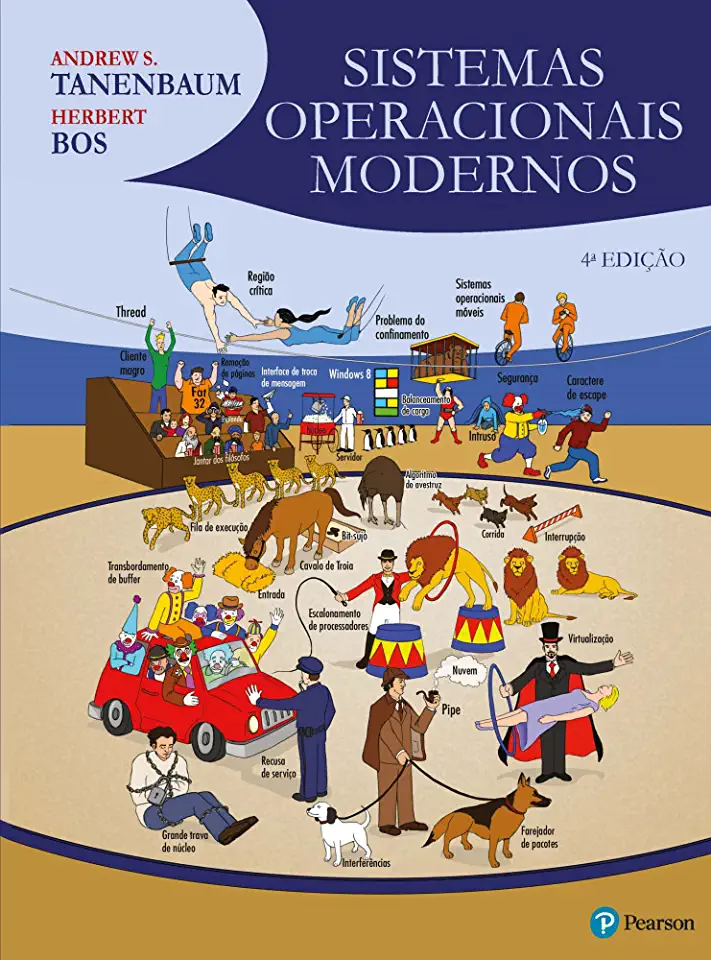
Modern Operating Systems - Andrew S. Tanenbaum
Modern Operating Systems: A Comprehensive Guide to Design and Implementation
Introduction
In the ever-evolving world of technology, operating systems play a pivotal role in managing the intricate workings of computers. Andrew S. Tanenbaum's "Modern Operating Systems" stands as a comprehensive and authoritative guide to the design and implementation of these essential software systems. This book provides a deep dive into the inner workings of operating systems, offering a profound understanding of their architecture, scheduling algorithms, memory management techniques, and much more.
Key Features:
Comprehensive Coverage: Encompasses a wide range of topics, from the fundamentals of operating systems to advanced concepts, ensuring a thorough understanding of the subject matter.
Practical Approach: Presents real-world examples and case studies, enabling readers to apply the knowledge gained to practical scenarios.
Clear and Concise Explanations: Complex concepts are presented in a lucid and accessible manner, making the book suitable for both students and professionals.
In-Depth Analysis: Provides a detailed examination of various operating system components, including process management, inter-process communication, file systems, and security mechanisms.
Historical Perspective: Explores the evolution of operating systems, tracing their development from early mainframes to modern distributed systems.
What You'll Learn:
Master the Fundamentals: Gain a solid understanding of the fundamental concepts and principles underlying operating systems.
Explore Scheduling Algorithms: Delve into the intricacies of scheduling algorithms, including first-come first-served, round-robin, and multi-level feedback, and their impact on system performance.
Understand Memory Management: Discover the various memory management techniques, such as paging, segmentation, and virtual memory, and their role in optimizing memory utilization.
Delve into File Systems: Explore the design and implementation of file systems, including FAT, NTFS, and ext4, and their strategies for efficient data storage and retrieval.
Enhance Security: Gain insights into operating system security mechanisms, including access control, authentication, and encryption, and their importance in protecting systems from unauthorized access.
Embrace Distributed Systems: Learn about distributed operating systems, their architecture, and the challenges associated with coordinating processes across multiple machines.
Why You Should Read This Book:
"Modern Operating Systems" is an indispensable resource for anyone seeking a comprehensive understanding of operating systems. Whether you're a student pursuing a career in computer science, a professional looking to enhance your knowledge, or an enthusiast fascinated by the inner workings of technology, this book offers a wealth of valuable insights and practical knowledge.
With its comprehensive coverage, clear explanations, and practical examples, "Modern Operating Systems" empowers readers to navigate the complexities of operating systems and become proficient in their design and implementation. Embrace the opportunity to delve into this fascinating field and unlock the secrets of the software that powers our digital world.
Conclusion:
"Modern Operating Systems" by Andrew S. Tanenbaum is a must-read for anyone seeking to master the intricacies of operating systems. Its comprehensive coverage, practical approach, and clear explanations make it an invaluable resource for students, professionals, and enthusiasts alike. Embark on this journey of discovery and gain the knowledge and skills to excel in the world of operating systems.
Enjoyed the summary? Discover all the details and take your reading to the next level — [click here to view the book on Amazon!]